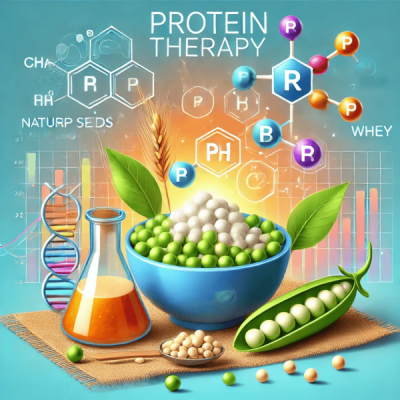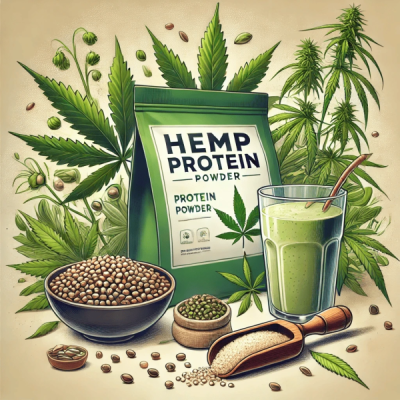Protein therapy: The key to regeneration, immunity, and a healthy lifestyle
Author: Ondrej Stovicek
What is protein therapy?
Protein therapy is a concept that emphasizes the importance of proteins in the diet and their impact on health, regeneration, and overall bodily functions. A typical diet includes proteins from various sources such as meat, dairy products, eggs, legumes, or grains. However, these sources may not always meet the body’s specific needs, such as during physical exertion, illness, or recovery periods. Some proteins are incomplete and lack essential amino acids, which can limit their effectiveness. Protein therapy therefore utilizes targeted supplementation with high-quality, complete proteins and amino acids to optimize health and bodily functions.
Why are proteins so important?
Proteins, commonly referred to as the "building blocks of life," are essential for:
- Tissue regeneration: The body uses proteins to repair muscles, skin, hair, and nails.
- Immune function: Proteins are key for the production of antibodies and fighting infections.
- Enzymatic activity: Most enzymes responsible for metabolic processes are made of proteins.
- Energy metabolism: Although the body primarily uses carbohydrates and fats as energy sources, proteins play a critical role during fasting or intense physical exertion.
How does protein therapy work?
Protein therapy involves increasing the intake of quality proteins and amino acids, either through diet or supplements.
Key aspects include:
- Choosing quality protein sources: Plant-based proteins (e.g., hemp protein, pea protein) and animal-based proteins (e.g., whey, eggs, meat).
- Focusing on complete proteins: Complete proteins contain all 20 amino acids, including the 8 essential ones the body cannot produce.
- Individualized approach: Protein needs vary depending on age, physical activity, and health status. Protein therapy is therefore tailored to the individual.
When is protein therapy suitable?
- Supporting athletes: Improves muscle recovery, promotes muscle growth, and reduces the risk of injury.
- Recovery from injury or illness: Helps speed up healing and tissue repair.
- Weight loss: Higher protein intake promotes satiety and preserves muscle mass during weight loss.
- Boosting immunity: Increased protein intake can enhance antibody production and immune defense.
- Aging: Older adults often require higher protein intake to maintain muscle mass and prevent sarcopenia.
Which proteins to choose for protein therapy?
- Hemp protein: Contains a complete spectrum of amino acids, is rich in easily digestible edestin, and supports immunity.
- Whey protein: Popular among athletes for its quick absorption and support for muscle recovery.
- Pea protein: Ideal for vegetarians and vegans, with a high content of BCAAs (branched-chain amino acids).
- Collagen protein: Promotes joint, skin, and hair health.
Potential risks of protein therapy
While protein therapy is generally safe, excessive protein intake can strain the kidneys and cause dehydration. It is important to follow recommended dosages and consult a professional before making dietary changes.
Protein therapy in practice
To incorporate protein therapy into your lifestyle, we recommend first determining your daily protein intake and comparing it to recommended values. Then, include quality sources of both plant-based and animal-based proteins and monitor the results (e.g., increased energy, improved recovery, and overall health).
Let us know how protein therapy works for you in practice!
Conclusion
Protein therapy is a modern approach to health that leverages the power of proteins to support regeneration, immunity, and overall well-being. Properly implemented protein therapy can bring numerous benefits, whether you're an athlete, recovering from an illness, or looking for ways to improve your lifestyle. Try it yourself and discover its potential!



